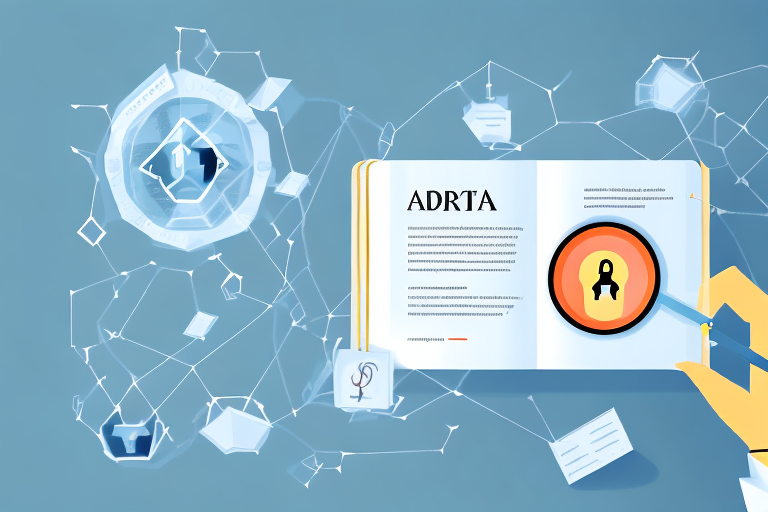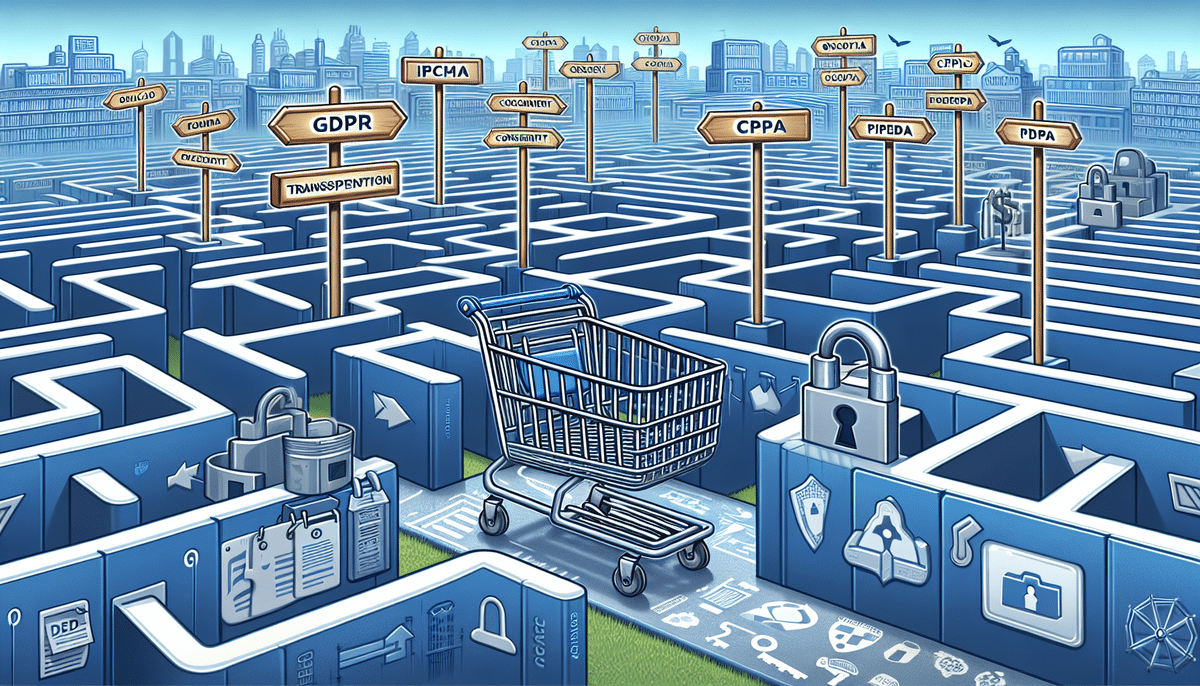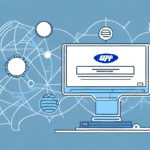Managing GDPR and Other Data Privacy Regulations: A Comprehensive Guide
In today's digital age, data is a critical asset for businesses. As technology advances and data becomes more accessible, important measures need to be taken to protect personal information. For this reason, the European Union established the General Data Protection Regulation (GDPR) in 2018 to provide uniform data protection rules for businesses operating in the EU. It aims to ensure that individuals have increased rights over their personal data and that businesses that collect, store, and process such data do so in compliance with the regulation. This comprehensive guide provides a detailed overview of GDPR and other data privacy regulations.
Understanding GDPR and Data Privacy Regulations
GDPR is the most extensive data privacy regulation to date, covering all EU member states. It provides greater protection to citizens regarding how their data is collected, used, and stored. GDPR imposes strict requirements on businesses that handle personal data, making them accountable for any misuse by imposing heavy fines. Failure to comply with GDPR can result in fines of up to €20 million or 4% of the company's annual global revenue, whichever is higher (GDPR Info).
Key Principles of GDPR
- Data Minimization: Businesses should only collect and process the minimum amount of personal data necessary to achieve their objectives.
- Consent: Explicit consent must be obtained from individuals before collecting and processing their personal data.
- Transparency: Clear and concise information must be provided to individuals about how their data is being used.
- Data Security: Appropriate technical and organizational measures must be implemented to ensure the security and confidentiality of personal data.
The Impact of GDPR on Businesses
Data privacy regulations have a far-reaching impact on businesses, regardless of their location. These regulations apply to any business that collects or processes the personal data of EU citizens. For businesses outside the EU, the regulations may apply if they offer goods or services to individuals in the EU or monitor their behavior through online tracking technologies.
Operational Implications
- IT Infrastructure: Enhanced security measures and data protection systems are required.
- Policies and Procedures: Comprehensive data handling and privacy policies must be established.
- Employee Training: Regular training programs are essential to ensure staff are aware of compliance requirements.
Transparency and Accountability
Businesses are required to provide clear information about data collection and usage, including the rights of individuals to access, erase, or object to the processing of their data. Implementing these measures not only ensures compliance but also fosters trust with customers.
The Importance of Compliance
Compliance with GDPR and other data privacy regulations is crucial for businesses that process personal data. It ensures that data is handled lawfully, fairly, and transparently, providing individuals with increased rights over their information. Additionally, compliance mitigates the risk of significant financial penalties and reputational damage.
Consequences of Non-Compliance
- Financial Penalties: Fines can reach up to €20 million or 4% of global annual revenue.
- Reputational Damage: Loss of customer trust can have long-term negative effects on a business.
- Operational Disruptions: Non-compliance may lead to restrictions on data processing activities.
Steps to Achieving Compliance
Achieving compliance with GDPR and other data privacy regulations can be complex, but following a structured approach can simplify the process.
1. Understand the Regulations
Familiarize yourself with GDPR and other relevant data privacy laws. Understanding the requirements is the first step toward compliance.
2. Audit and Map Data
Conduct a comprehensive audit to identify what personal data is collected, how it is processed, and where it is stored. Mapping data flows helps in assessing compliance gaps.
3. Develop Policies and Procedures
Create clear data protection policies and procedures that outline how personal data is handled within the organization.
4. Implement Data Protection Measures
Design and implement technical and organizational measures to protect personal data, such as encryption and access controls.
5. Train Employees
Regular training programs ensure that employees understand their roles and responsibilities in maintaining data privacy.
6. Monitor and Review Compliance
Establish ongoing monitoring and review processes to ensure continuous compliance with data privacy regulations.
Best Practices for Data Management
Effective data management is essential for compliance and safeguarding personal information.
Identifying Personal Data
Identify all types of personal data collected and processed by your business. This includes basic information like names and contact details, as well as sensitive information such as medical records and financial data.
Storing and Processing Data
- Secure Storage: Use encryption and secure databases to protect data.
- Access Controls: Limit data access to authorized personnel only.
- Data Accuracy: Regularly update and verify the accuracy of personal data.
Consent Management
Implement robust consent management processes to ensure that consent is obtained, recorded, and easily withdrawable by individuals. Transparent communication about data usage fosters trust and compliance.
Breach Notification and Incident Response
Develop an incident response plan to address data breaches promptly. GDPR requires breaches to be reported within 72 hours of discovery. Timely reporting and transparent communication can mitigate the impact of breaches.
The Role of a Data Protection Officer
Under GDPR, certain businesses must appoint a Data Protection Officer (DPO) to oversee data protection strategies and ensure compliance. The DPO is responsible for monitoring data processing activities, advising on compliance, and acting as a liaison with regulatory authorities.
Responsibilities of the DPO
- Monitoring compliance with GDPR and other data privacy laws.
- Conducting data protection impact assessments.
- Providing training and guidance to staff.
- Serving as a point of contact for data subjects and authorities.
Challenges of Cross-Border Data Transfers
Transferring personal data outside the EU introduces additional compliance challenges. GDPR mandates that such transfers occur only to countries with adequate data protection standards or through mechanisms like adequacy decisions and standard contractual clauses.
Ensuring Adequate Protection
Businesses must assess the data protection laws of the destination country to ensure they meet EU standards. Implementing robust safeguards helps prevent data misuse and ensures compliance.
Future of GDPR and Data Privacy Regulations
Data privacy regulations continue to evolve in response to technological advancements and emerging threats. Future trends may include stricter enforcement, expanded individual rights, and the introduction of new regulations at national and international levels.
Emerging Trends
- Increased Enforcement: Regulatory bodies are likely to enforce GDPR more rigorously, with higher fines for non-compliance.
- Technological Integration: Enhanced use of AI and machine learning for data protection and compliance monitoring.
- Global Harmonization: Efforts to harmonize data privacy laws across different jurisdictions to facilitate international business operations.
Common Misconceptions about GDPR
Understanding GDPR requires dispelling several common misconceptions:
- Only EU-Based Businesses are Affected: GDPR applies to any business that processes the personal data of EU citizens, regardless of the business's location.
- GDPR Only Covers Online Data: The regulation covers all forms of personal data, both online and offline.
- Consent is the Only Requirement: GDPR encompasses a broader range of obligations, including data minimization, security measures, and breach notifications.
Essential Tools for Managing Compliance
Several tools can assist businesses in achieving and maintaining compliance with GDPR and other data privacy regulations:
- Data Mapping and Auditing Software: Tools like Varonis help in tracking and managing data flows.
- Secure Storage Solutions: Implementing encryption and secure databases to protect sensitive information.
- Employee Training Programs: Platforms like GoodFirms offer training resources to educate staff on compliance requirements.
- Incident Response Plans: Tools for managing and responding to data breaches effectively.
Ensuring compliance with GDPR and other data privacy regulations is critical for businesses that collect, store, and process personal data. By following the steps outlined in this guide, businesses can achieve and maintain compliance, protect personal data, and minimize the risk of regulatory fines and reputational damage. Making data privacy an essential aspect of operations helps build trust with customers and ensures long-term success in the digital age.






















